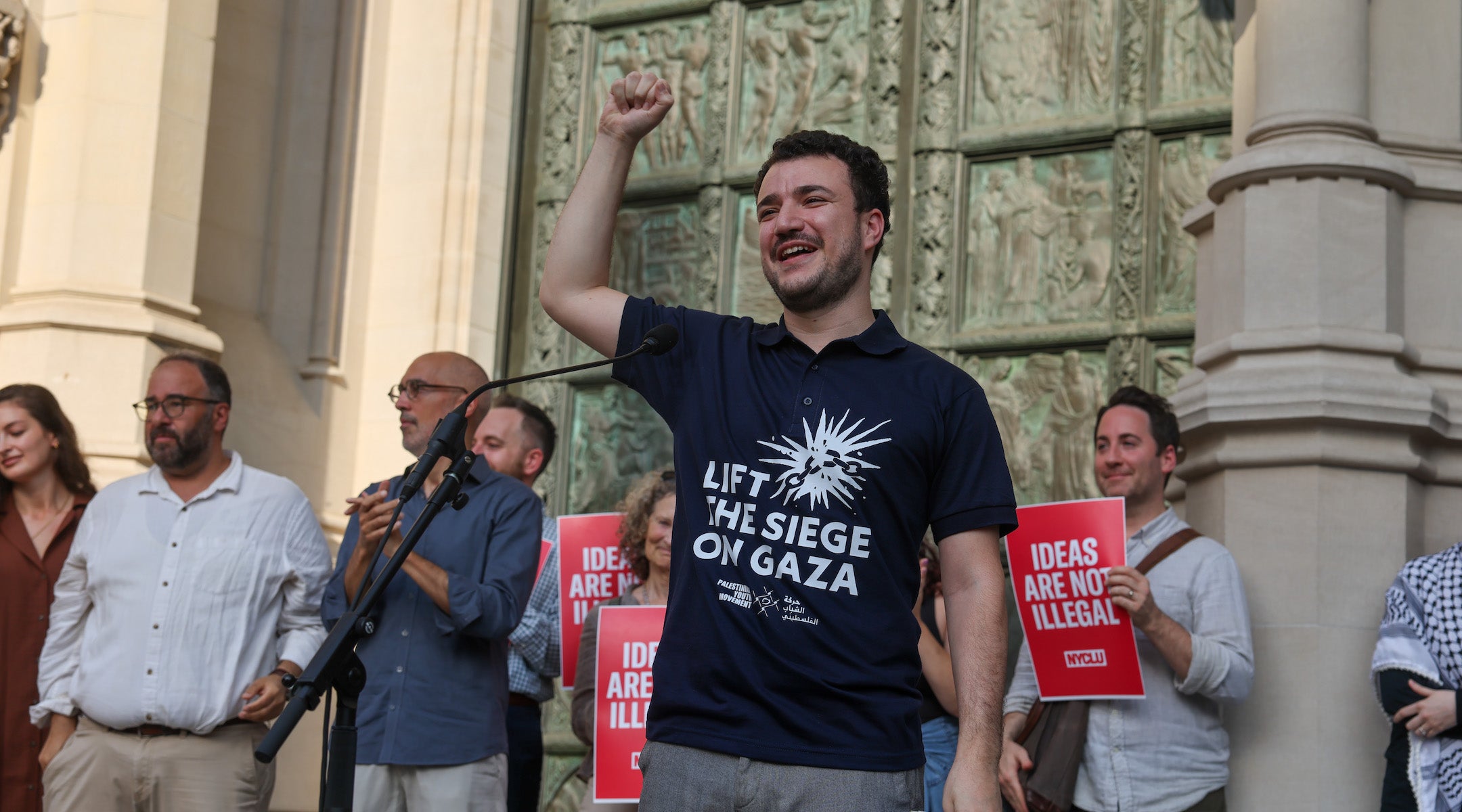Six weeks after being released by federal detention, Mahmoud Khalil, the first student pro-Palestinian protest leader to be arrested by the Trump administration last spring, said concerns about antisemitism at Columbia University reflected a “manufactured hysteria.”
Khalil first made the allegation in a jailhouse letter in April, soon after he was detained by immigration authorities over his role in the university’s pro-Palestinian protests, which critics said were fueling antisemitism.
He repeated it in a wide-ranging interview with New York Times columnist Ezra Klein published on Tuesday. The interview appears to mark the most extensive public questioning that Khalil has faced about the allegations of antisemitic activity that made him a symbol of the Trump administration’s crackdown on colleges.
In the interview, Klein delved into Khalil’s arrest on March 10, which stemmed from allegations that he had fueled antisemitism on Columbia University’s campus, and subsequent 3-month detainment at an ICE detention center in Louisiana. In June, in Khalil’s first interview since he was released from federal detention, he told the New York Times that his detainment “felt like kidnapping.”
During the interview, Klein repeatedly invoked his Jewish identity, but when he brought up his personal experience with antisemitism and allegations of antisemitism at Columbia University, Khalil pushed back.
“Look, I’m Jewish. I don’t take antisemitism lightly. You should see my inbox. And it can be true that Jews can be unsafe, but the idea — it is real that there was antisemitism at Columbia, yet nobody there ended up as unsafe as you did,” said Klein.
“I would push back regarding antisemitism at Columbia. I would really push back on that,” replied Khalil, to which Klein responded, “There was none?”
“I wouldn’t say there was none. I would say there is this manufactured hysteria about antisemitism at Columbia because of the protests,” Khalil replied.
He added, “Proud Boys were at the doors of Columbia, the very right-wing group. And there are incidents here and there. But it’s not like antisemitism is happening at Columbia because of the Palestine movement.”
Khalil’s arrest in March by immigration authorities marked a flashpoint in the Trump administration’s campaign against antisemitism on college campuses. In its wake, several other non-citizen pro-Palestinian student protesters faced arrests and deportation efforts, prompting outcry and calls for due process, including from many Jewish groups.
Last month, Columbia, where Khalil earned a graduate degree, reached a $221 million dollar settlement with the federal government over antisemitism allegations. In June, the school released a report that found that nearly two thirds of its Jewish students reported not feeling accepted for their religious identity during the school year that included Hamas’ Oct. 7, 2023, attack on Israel.
“This is why I would always push back,” continued Khalil in his response to Klein’s invocation of antisemitism at Columbia. “I have a strong belief that antisemitism and anti-Palestinian racism rise together. The incidents rise together because the same groups are perpetrating that in different ways.”
Khalil also defended the phrases “Globalize the intifada” and “From the river to the sea, Palestine will be free,” which pro-Palestinian activists say are nonviolent but many Jews interpret as calls to violence. He also said that Hamas’ Oct. 7 attack violated international law because it targeted civilians but characterized it as inevitable.
Early in the interview, Klein asked Khalil whether he thought Hamas attacked Israel to provoke “some kind of war,” or whether he saw it “as something that needed to happen to break the equilibrium” in a conflict that had stagnated.
“It’s more the latter — just to break the cycle, to break that Palestinians are not being heard,” said Khalil. “And to me, it’s a desperate attempt to tell the world that Palestinians are here, that Palestinians are part of the equation. That was my interpretation of why Hamas did the Oct. 7 attacks on Israel.”
JTA has documented Jewish history in real-time for over a century. Keep our journalism strong by joining us in supporting independent, award-winning reporting.






